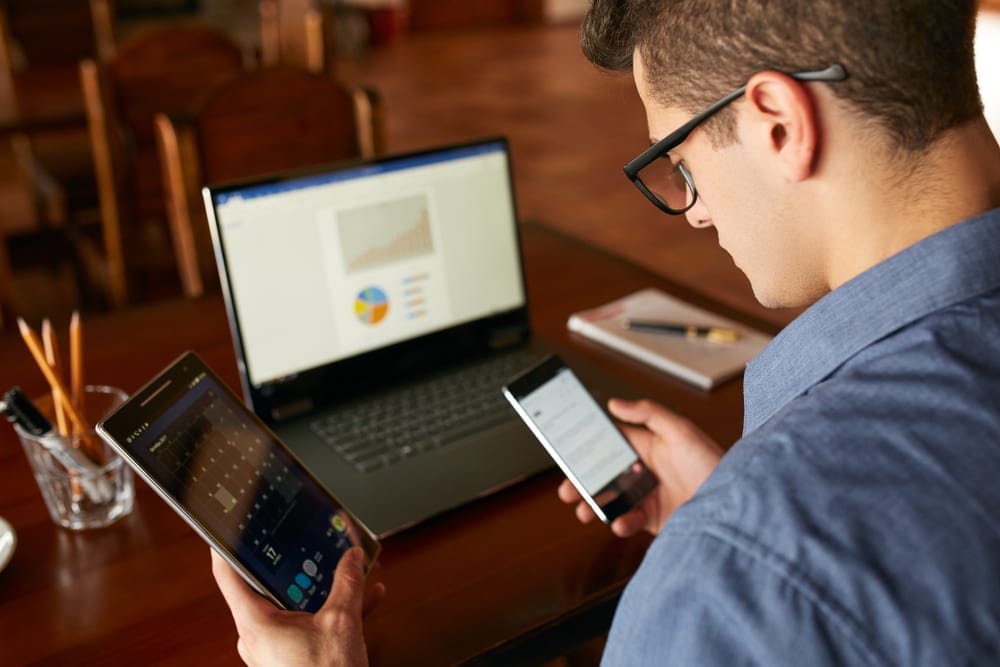It’s been a long day at work. You come home tired but with a desire to rejuvenate yourself. You look at the book lying by the bedside desk and wonder if you should start with the novel again. You realize it’s just going to make you sleepy. Even though your eyes are evidently tired after looking at a screen all day, you still end up watching another episode of the thrilling Netflix series.
It’s pretty clear how we increasingly choose to spend our most precious commodity – time – in an age of information and sensory overload. It seems like there’s no dearth of options to keep us occupied and distracted. Social media, on-demand streaming platforms, gaming devices, content and information from around the world at our fingertips – the means of distractions are many and getting away from them is only going to get more difficult.
These distractions are on a quest to capture our attention to keep us hooked for longer periods of time. In fact, there are bright minds at work around the world just to help make this happen. And as consumers, most of us seem to have given in to the temptation of never-ending scrolls and bright visuals on a quest to hijack our sleep. In fact, Netflix CEO has even said so.
“You get a show or a movie you’re really dying to watch, and you end up staying up late at night, so we actually compete with sleep,” he was quoted saying in 2017.
Given the sea of distractions around us, is it a wonder that most of us would find it difficult to get through an hour without glancing at our phones for notifications? Or enjoy an uninterrupted hour of reading?
Doing better with undivided attention

Our growing addiction to screens comes at the cost of more than just leaving our beloved books behind. We find it increasingly difficult to give undivided attention to the task of hand, peel away the layers of complexity and grasp concepts that require deep thought. It’s easy to be distracted and more difficult to make room for deeper introspection.
This insight is the crux of the book ‘Deep Work’ by Cal Newport. He essentially talks about the ability to focus as essential to giving our best in a skills-based economy. And I think he does have a point.
It’s increasingly clear that in a world driven by fleeting attention and impulses, those who can engage in thoughtful actions, in the long run, stand to gain a lot. Be it thinking about how to frame an important email in the most convincing way possible, creating a melody that speaks to the hearts of many or finding an idea with a potential to disrupt the market, none of it is really possible without putting away distractions and giving undivided attention to the task at hand. Masterpieces can’t really be created in between WhatsApp chats and gaming sessions.
What to do about it?
It’s not easy, but I think small changes in how we deal with our devices and distractions are worth the effort. Here are some ways you can reclaim a piece of your attention that’s been currently taken over by some form of technology:
- During hours you want to be productive, set objectives for every hour. Attend to urgent calls, but that notification about someone liking your latest Insta post can wait.
- Make use of digital well-being tools that limit access to your most used (and possibly the most addictive) apps. Such tools now come pre-bundled with leading mobile operating systems.
- Find other things to do. It’s easy to forget that people had fulfilling and satisfying lives before mobile phones took over. Read, paint, sing, dance, sculpt, meet a friend – there are countless rewarding things to do that don’t involve digital devices.
- Carve out some digital playtime. Finding focus doesn’t have to mean giving up on the ease of access to the best content and stories out there. Along with “deep work”, you can set aside a reasonable amount of time to spend time on digital platforms.
Devices and connectivity have undoubtedly made our lives a lot easier. However, as we grapple with the sensory overload, let’s find better ways to engage with technology and help it do our best.

























